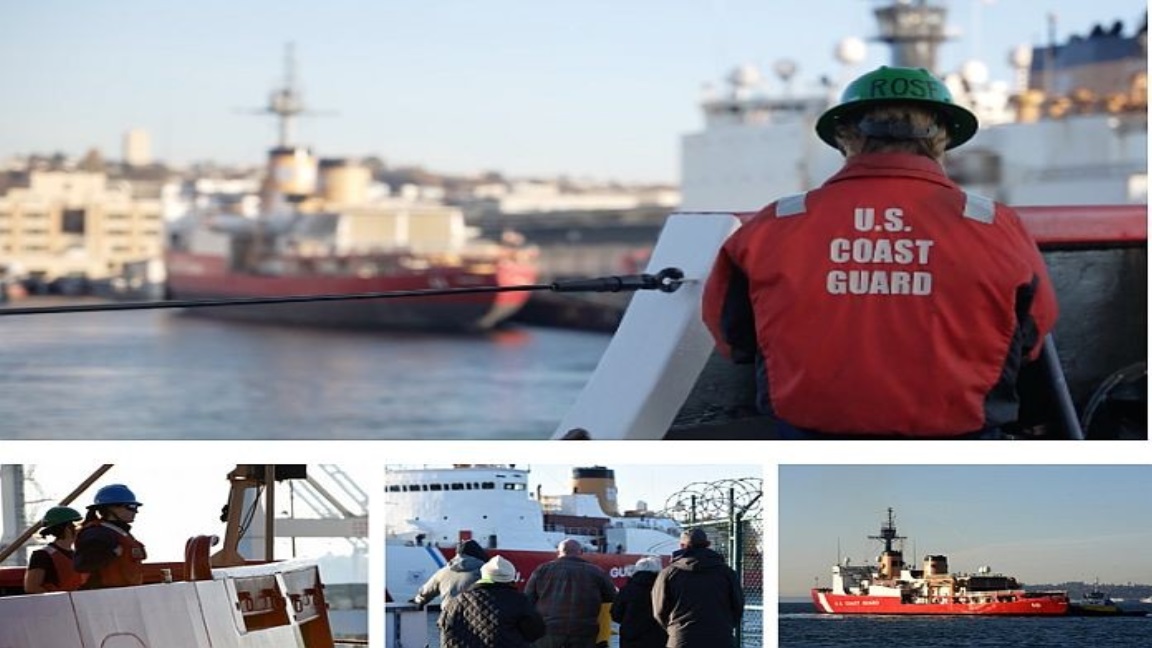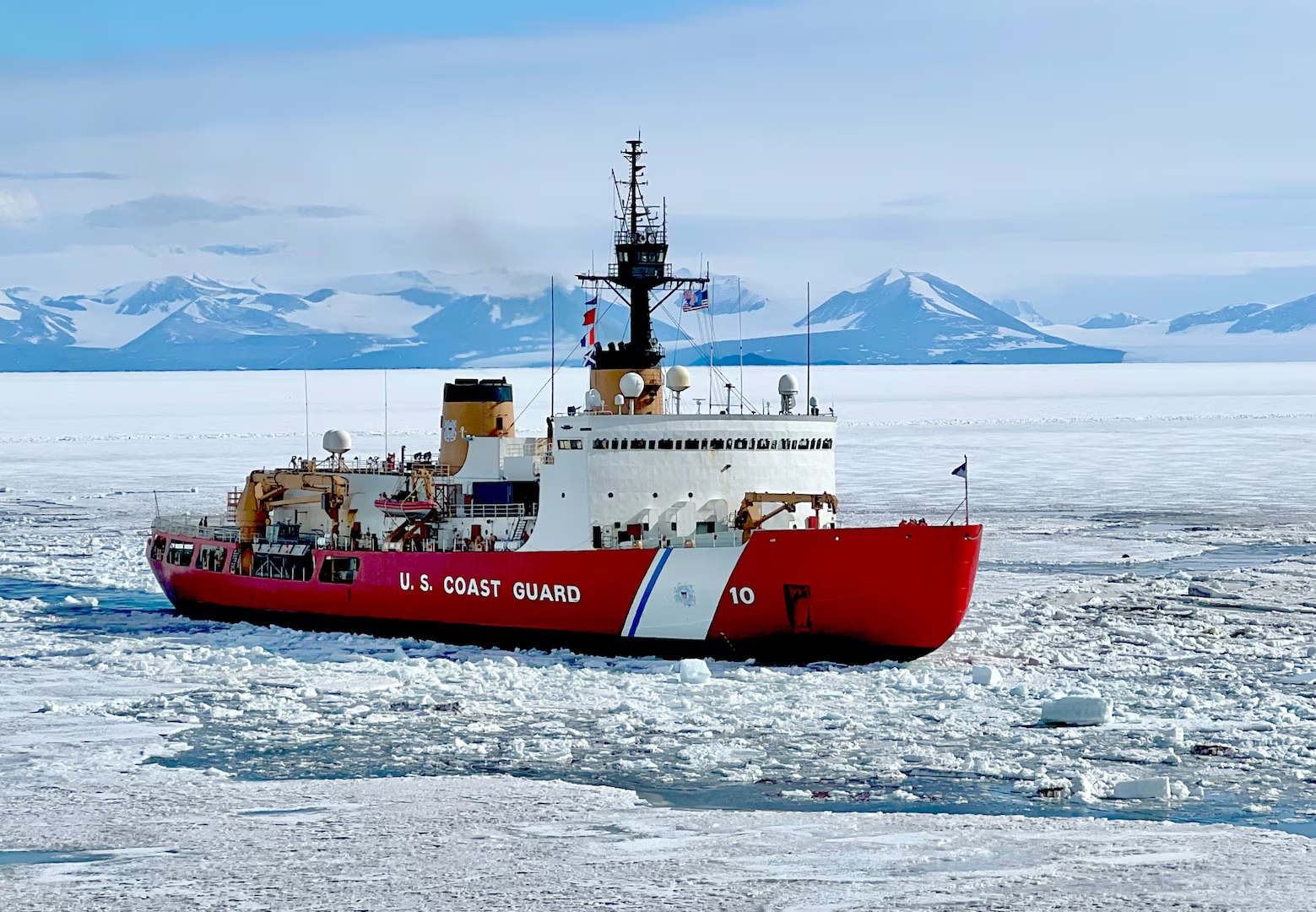Polar Star Completes Mission: Navigating Challenges to Reach Antarctica

(PHOTO: Caribbean News Global)
U.S. Coast Guard Icebreaker Returns from Antarctic Mission
According to The Maritime Executive, the U.S. Coast Guard icebreaker Polar Star has completed its annual voyage to Antarctica marking the end of a 138-day mission to clear a channel to America’s main research station on the frozen continent. Known as “Operation Deep Freeze,” this vital breakout is Polar Star’s primary assignment each year. During this mission, Polar Star traversed nearly 28,000 miles across parts of four oceans and visited four continents. Despite encountering challenging conditions including freezing temperatures and mechanical issues, the crew successfully navigated and maintained the vessel. They cleared a 38-mile-long channel to McMurdo Station and facilitated the delivery of crucial supplies and fuel for the National Science Foundation base. Polar Star’s commanding officer Capt. Keith Ropella, praised the crew’s dedication and teamwork in accomplishing the mission despite adverse circumstances.
READ ALSO: Israel On The Verge Of Acquiring The Advanced F-15EX Fighter Jet- A New Era In Aerial Dominance!
Repair and Refit Work Begins for U.S. Coast Guard Icebreaker Polar Star
Following its return from the Antarctic mission, the U.S. Coast Guard icebreaker Polar Star has docked at Mare Island Drydock in California for repair and refit work. The aging vessel, now 48 years old requires maintenance to extend its service life. Projects scheduled for this year’s refit include the replacement of aging machinery control systems and significant maintenance efforts. Despite ongoing efforts to keep Polar Star operational concerns linger about the vessel’s aging infrastructure. The Congressional Research Service anticipates that its replacement may not be available until 2028 at the earliest leaving Polar Star to continue its crucial role in polar operations for several more years. As the nation’s sole functioning heavy icebreaker Polar Star remains essential for ensuring access to Antarctica and supporting scientific research efforts in the region.
READ ALSO: AV-8B Harrier II Marine Corps Bids Adieu: A Farewell To A Versatile Vertical Workhorse After 40 Years Of Service

















































